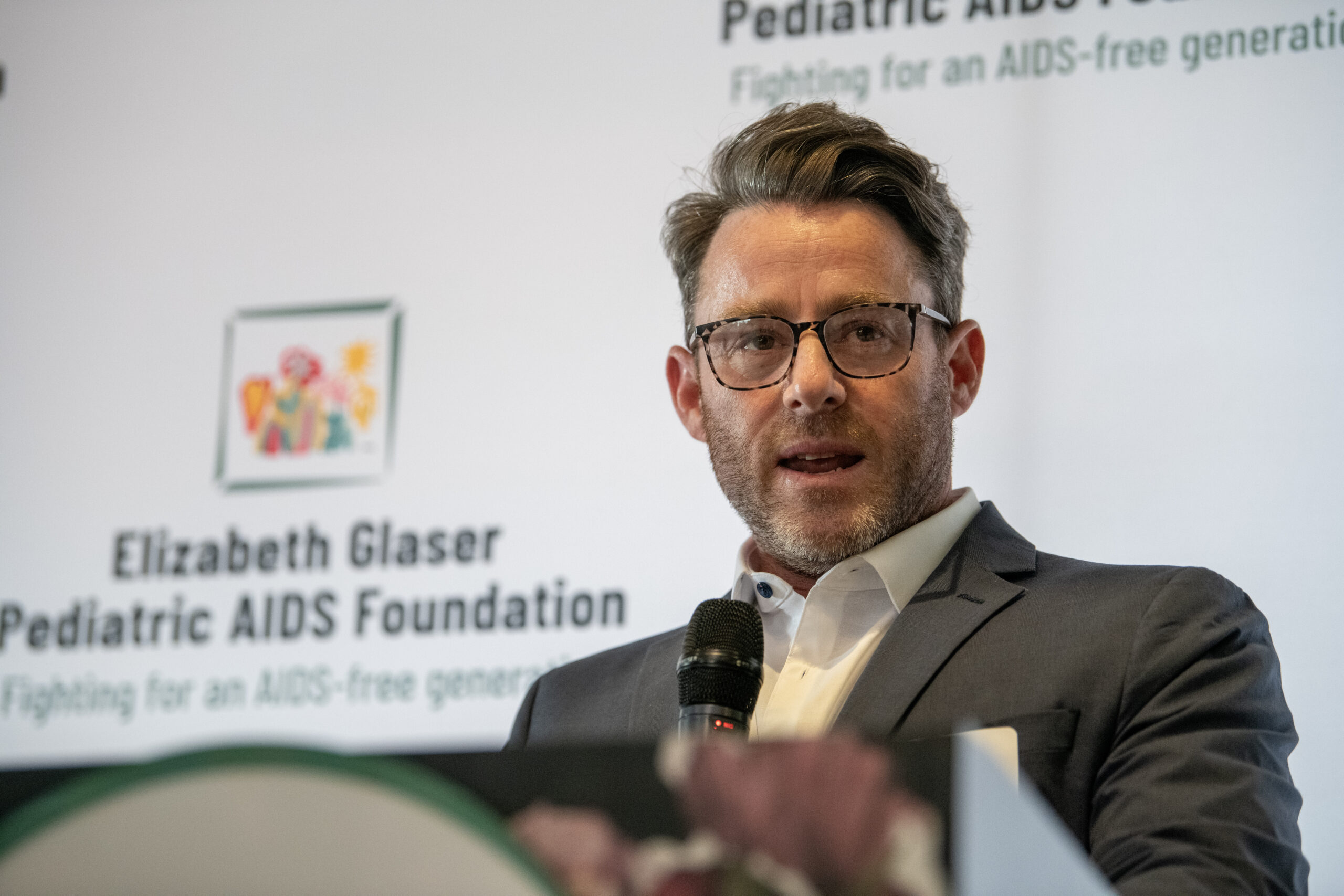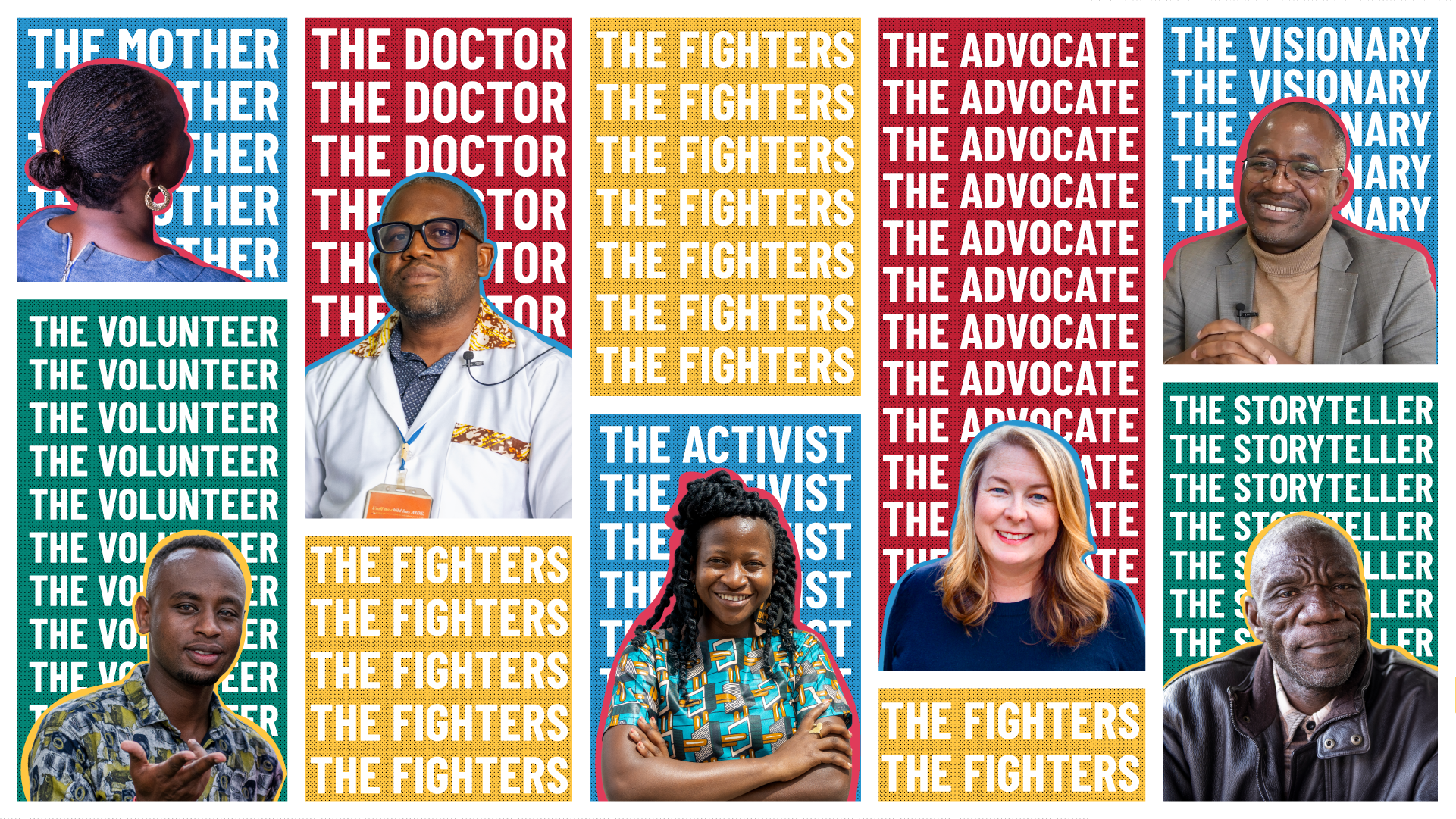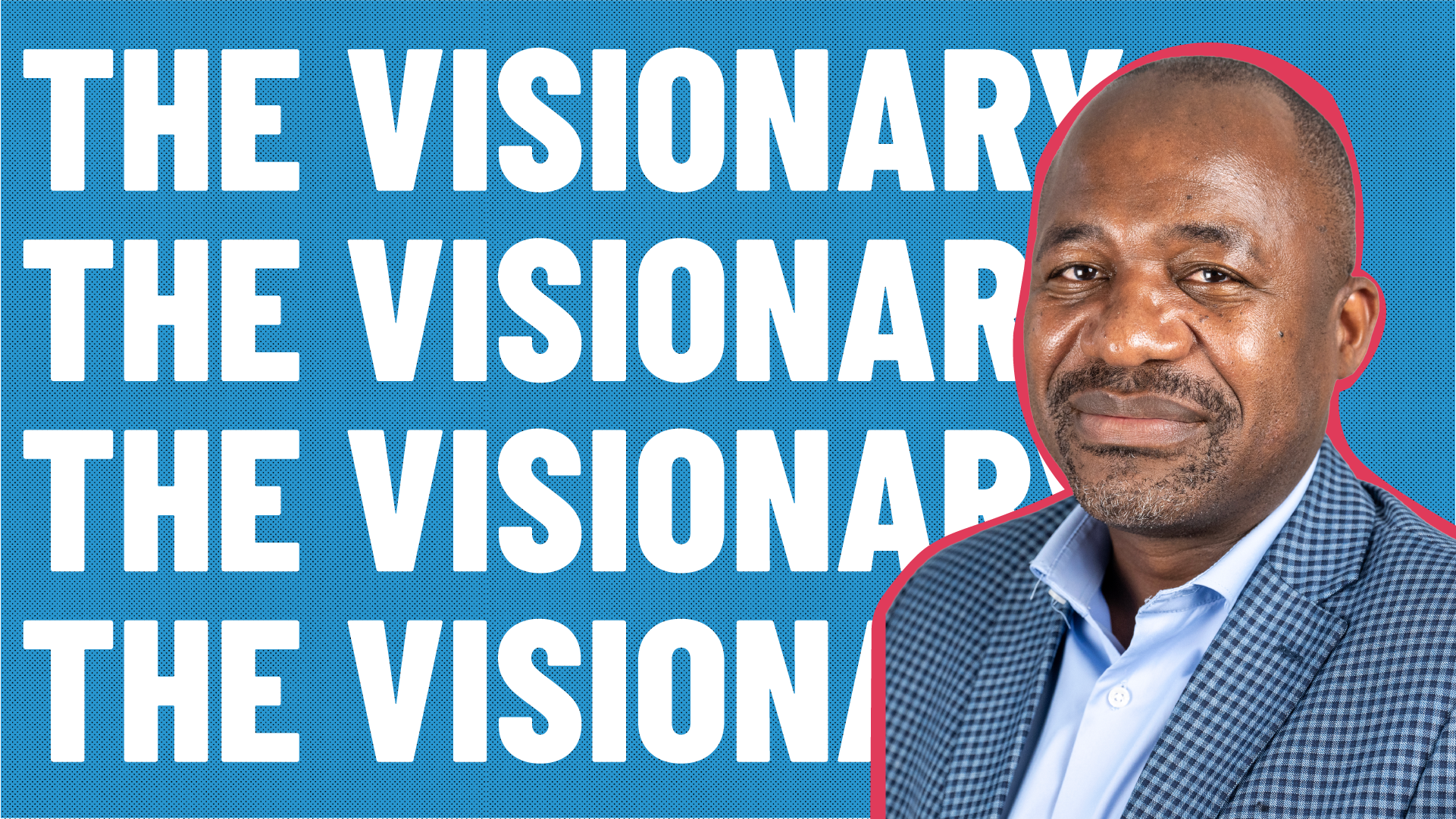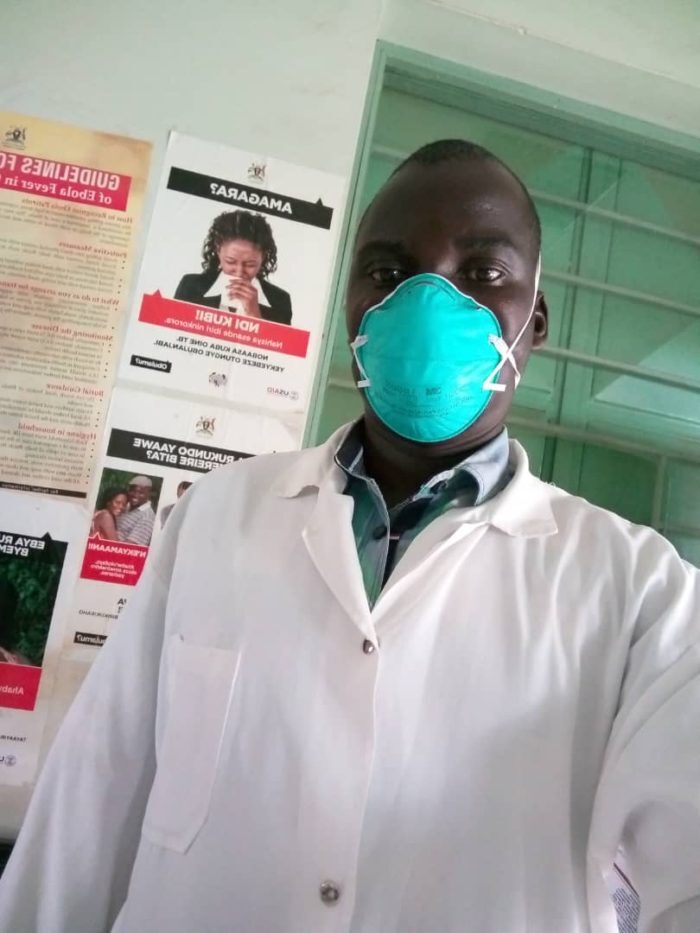 Justus Rwamahe is the clinician-in-charge of the antiretroviral therapy (ART) clinic at Kihihi Health Center IV, which is supported by the Elizabeth Glaser Pediatric AIDS Foundation (EGPAF) through USAID RHITES-SW project. Justus’ day-to-day work includes clinical care, counseling, psychosocial support, HIV testing, client lab monitoring and documentation of services provided. However, everything is changing fast with the outbreak of COVID-19.
Justus Rwamahe is the clinician-in-charge of the antiretroviral therapy (ART) clinic at Kihihi Health Center IV, which is supported by the Elizabeth Glaser Pediatric AIDS Foundation (EGPAF) through USAID RHITES-SW project. Justus’ day-to-day work includes clinical care, counseling, psychosocial support, HIV testing, client lab monitoring and documentation of services provided. However, everything is changing fast with the outbreak of COVID-19.
Even before the new guidelines were released, Justus decided to “decongest” the clinic. The team was concerned that clients with compromised immunity would be at risk of this new virus. Previously clients would be scheduled according to the date for their next refill and this would sometimes mean up to 100 clients at one dispenser window. Justus and the ART team took their annual calendar and scheduled appointments in tens, separated across the compound with only one person getting services at a time.
Kihihi HC IV is one of the early adopters of Community Client Led ART Delivery (CCLAD), a differentiated HIV care and treatment service-delivery model to address the specific requirements of individual clients. Specifically, CCLAD is a platform for client-led groups comprising of stable ART clients living in the same community, to access ART in the community.
Before COVID-19, there were already CCLAD groups in place, with a selected leader to pick up drug refills on behalf of group members—to reduce congestion at the clinic, to reduce the frequency of clinic visits per individual client, and to increase quality time at the clinic for clients coming to the clinic. During COVID-19 CCLAD groups make more sense than ever. While COVID-19 was still on the horizon, Justus helped to create more CCLAD groups in anticipation of a national shutdown.
Kihihi HC IV is not without challenges during this time. As in many other Ugandan health facilities health workers do not have enough personal protection equipment. But Justus and the team are strict on those practices under their control, such as handwashing and social distancing.
Justus and the team are strict on those practices under their control, such as handwashing and social distancing.
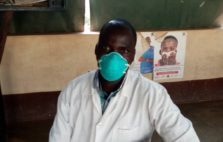
In addition, the ART clinic is receiving large numbers of new clients who find themselves stuck in the area due to the national shutdown. In response, the Uganda Ministry of Health developed a follow-up form for clients receiving refills at sites other than their home sites during the COVID-19 crisis. Justus and the team are quickly adapting these quickly, but it’s not always easy as new people come in and ask for HIV services. Many people living with HIV are returning to care out of fear of clinic closure due to COVID-19.
“There was a woman who came in with a urinary tract infection and a cough, and it took a lot of probing for her to tell me that she had stopped her HIV medication,” says Justus. He has been able to use his counseling skills to handle such cases, refer her for viral load testing and TB screening. His team is alert to expect new cases like this that need special attention during this time of fear.


